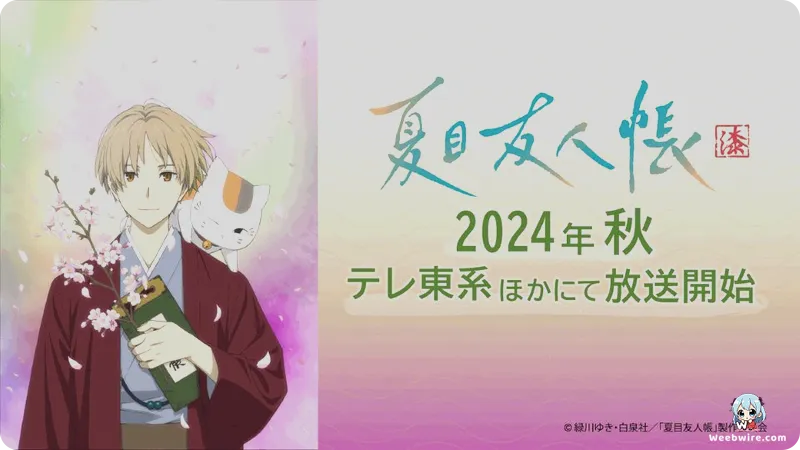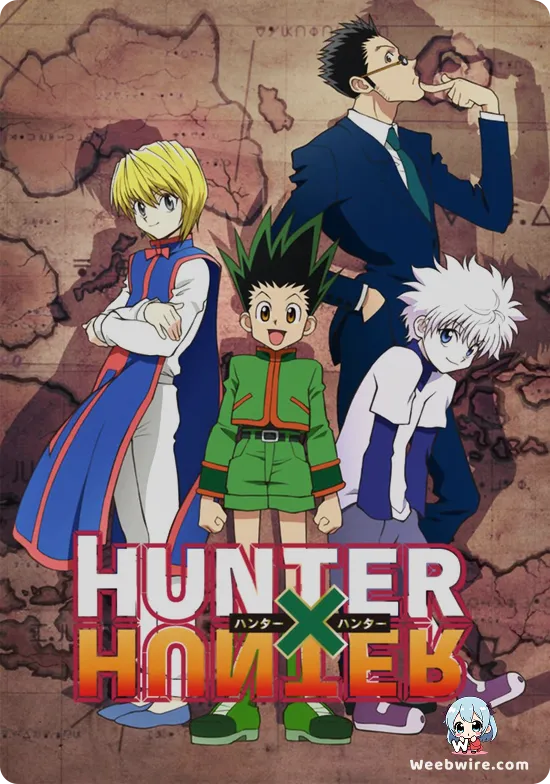Natsume's Book of Friends Season 4: A Masterclass in Subtle Storytelling and Enduring Charm

Upon its January 2012 release, Natsume's Book of Friends Season 4, officially titled Natsume Yuujinchou Shi, quietly yet profoundly solidified its place as a masterclass in atmospheric storytelling and profound emotional resonance. This installment, much like its beloved predecessors, masterfully diverges from typical genre conventions, choosing instead to delve into the subtle complexities of human-yokai relationships, the pervasive ache of loneliness, and the comforting solace of belonging. Beneath its tranquil surface lies a wealth of fascinating insights and meticulous production details that deepen appreciation for this truly beloved series, cementing its legacy in the hearts of many anime enthusiasts.
A truly remarkable aspect that underpins the series' enduring charm is the unparalleled chemistry between its lead voice actors, Hiroshi Kamiya, who lends his voice to the stoic and empathetic Takashi Natsume, and Kazuhiko Inoue, the voice behind the majestic Madara and the endearing, gluttonous Nyanko-sensei. Their frequent collaborative recording sessions, a practice that is notably rare in the often-segmented world of anime production, fostered an organic banter and allowed for incredibly nuanced reactions. This is particularly evident in the playful arguments and deeply heartfelt moments shared between Natsume and Nyanko-sensei. This shared recording environment significantly contributed to the authentic, evolving, and utterly endearing bond that serves as the emotional core of the series' widespread appeal, making their interactions feel genuinely lived-in and relatable.
The anime's unique visual aesthetic, ranging from its breathtakingly serene landscapes to the ethereal and often haunting designs of its yokai, directly reflects the distinctive artistic style of manga author Yuki Midorikawa. Midorikawa's signature use of negative space, delicate lines, and a gentle, often muted color palette translates beautifully into animation, imbuing the entire series with a nostalgic, dreamlike quality that is both comforting and subtly melancholic. Season 4 meticulously adapted some of the manga's most poignant chapters, with animation studio Brain's Base, which skillfully handled the first four seasons, carefully preserving Midorikawa's original brushstrokes and the delicate expressions that convey Natsume's quiet internal struggles and profound empathy. This unwavering dedication ensured that even the most monstrous or benevolent creatures retained an inherent, melancholic beauty, making them feel like integral parts of a living, breathing world.

Furthermore, the series' deep roots in Japanese folklore and mythology are not merely decorative but are integral to its rich narrative tapestry. Beyond the central 'Book of Friends' concept, which itself draws from ancient beliefs about names holding immense spiritual power, Season 4 thoughtfully introduced viewers to a myriad of lesser-known yokai and localized legends. Each creature, however minor its role, often carried a piece of traditional lore, serving as a subtle yet enriching educational element for the audience. For instance, the sensitive depictions of benevolent mountain spirits or ancient forest guardians are direct interpretations of regional kami, showcasing Midorikawa's extensive research and profound respect for the source material. This meticulous attention to cultural detail grounds the fantastical elements in a believable, unseen world that feels both magical and deeply authentic.
Nyanko-sensei, with his iconic dual forms as the majestic, powerful Madara and the corpulent, maneki-neko-esque cat, offers far more than just comic relief. His design and multifaceted personality are deeply layered, resonating strongly with Japan's cultural affinity for felines, which are often seen as symbols of good fortune and mystery. His insatiable appetite for sake and snacks provides a worldly, almost hedonistic counterpoint to Natsume's reserved and often burdened nature, creating a dynamic that sparks both genuine humor and unexpected moments of profound wisdom. While his Madara transformation is always a visual treat, his enduring popularity and beloved status among fans undoubtedly stem from the relatable antics and surprisingly deep emotional support offered by his smaller, more approachable form.
The anime's subtle yet profoundly effective use of sound design and the evocative music composed by Makoto Yoshimori is equally pivotal to its immersive quality. Yoshimori's score for Natsume's Book of Friends is renowned for its tranquil, often melancholic, and deeply evocative melodies, which perfectly complement the narrative's emotional beats and quiet introspection. Distinct sound effects for different yokai are meticulously crafted to be both unsettling and intriguing, adding another immersive layer to the rich, unseen world Natsume navigates. This careful attention to auditory detail ensures that every encounter, every quiet moment, and every emotional revelation is amplified, drawing the viewer deeper into Natsume's unique journey.
Natsume's Book of Friends Season 4, produced by Aniplex and animated by the talented Brain's Base, stands as a prime example of how a series can achieve enduring popularity and critical acclaim not through grand spectacle or explosive action, but through sheer heart and nuanced storytelling. Its unwavering focus on the quiet, personal journey of a boy connecting with both humans and the supernatural, all while grappling with his unique and often burdensome abilities, remains a powerful testament to the art of contemplative narrative. The consistent quality maintained across all its seasons, including this fourth installment, highlights the production team's deep dedication to preserving the tender, introspective, and profoundly human spirit of Yuki Midorikawa's original manga, making it a truly timeless favorite for audiences worldwide.
Credits
Natsume's Book of Friends Season 4
Author
Yuki Midorikawa
Cover Art
Yuki Midorikawa
Studio
Brain's Base
Publisher
Hakusensha
Producers





